Eyes are not only associated with vision but can act as windows to our health as well. Apart from providing hints about diminishing vision, glaucoma and dry eyes, there are various health complications that your eyes can often be the first indicators of. Of the many diseases, most conditions can be revealed by simply looking into the mirror and carefully observing your eyes. Here are few common diseases whose first symptoms might be seen in your eyes.
 Bug eyes: Clinically known as exophthalmos, bug eyes are one of the common symptoms observed in case of an overactive thyroid such as Graves’s disease. The high levels of thyroid hormones in the body cause the eye tissues to swell leading to bulging eyes. Here are top 8 interesting facts about the human eye.
Bug eyes: Clinically known as exophthalmos, bug eyes are one of the common symptoms observed in case of an overactive thyroid such as Graves’s disease. The high levels of thyroid hormones in the body cause the eye tissues to swell leading to bulging eyes. Here are top 8 interesting facts about the human eye.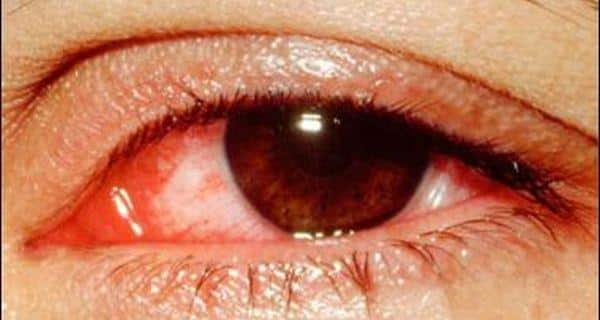 Blood-red eyes: Most of us might have encountered bloodshot eyes as a mere consequence of sun exposure, dust, allergies or a hangover. However, bloodshot eyes are common indicators of fatigue, stress or insomnia. It is caused due to swelling of the blood vessels present in the surface of the sclera (white portion of the eye). In rare cases, a subconjunctival haemorrhage, which causes build-up of blood on conjunctiva due to bursting of blood vessel, might be the case.
Blood-red eyes: Most of us might have encountered bloodshot eyes as a mere consequence of sun exposure, dust, allergies or a hangover. However, bloodshot eyes are common indicators of fatigue, stress or insomnia. It is caused due to swelling of the blood vessels present in the surface of the sclera (white portion of the eye). In rare cases, a subconjunctival haemorrhage, which causes build-up of blood on conjunctiva due to bursting of blood vessel, might be the case.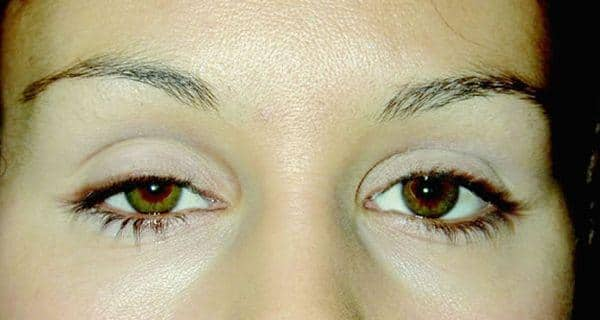 Droopy eyes: Known to be a sign of ageing, drooping of eyelids in rare cases is known to be a sign of myasthenia gravis, an autoimmune disorder or brain tumor. Medically termed as ptosis, people might suffer from drooping of both eyelids. Dr Amrita Sodhi, eye specialist, Director of the Advanced Eye Hospital and Institute says, ‘Though a droopy eyelid can be caused by something as simple as old age, it can also be caused by more severe conditions like strokes, brain tumours or myasthenia gravis (a disease in which there is muscle weakness). This is a serious condition and needs urgent medical attention.’
Droopy eyes: Known to be a sign of ageing, drooping of eyelids in rare cases is known to be a sign of myasthenia gravis, an autoimmune disorder or brain tumor. Medically termed as ptosis, people might suffer from drooping of both eyelids. Dr Amrita Sodhi, eye specialist, Director of the Advanced Eye Hospital and Institute says, ‘Though a droopy eyelid can be caused by something as simple as old age, it can also be caused by more severe conditions like strokes, brain tumours or myasthenia gravis (a disease in which there is muscle weakness). This is a serious condition and needs urgent medical attention.’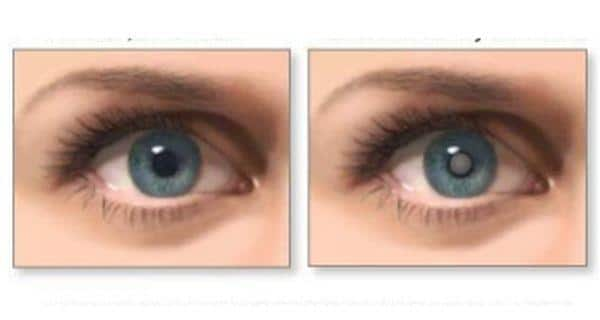 Cloudy eyes: Cataracts, commonly seen in older people, are characterized by clouding of the eye lens. Although younger people also suffer from this condition, there might be various reasons responsible for it such as diabetes, tumor or medications. Read more about eye care tips for diabetics.
Cloudy eyes: Cataracts, commonly seen in older people, are characterized by clouding of the eye lens. Although younger people also suffer from this condition, there might be various reasons responsible for it such as diabetes, tumor or medications. Read more about eye care tips for diabetics.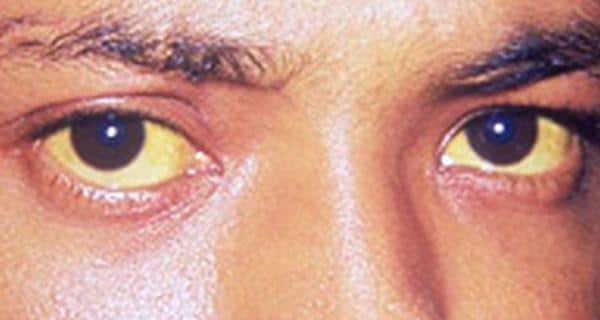 Yellow eyes: The common causes of yellowing of eyes include liver diseases such as hepatitis, cirrhosis or jaundice. The yellow colour of the eyes is due to an increase in the levels of bilirubin, a bile salt produced in the liver, in the body. ‘If you are suffering from any other symptoms like fever, loss of appetite, darker urine, itching, abdominal pain etc, do see your General Physician right away,’says our expert Dr Amrita.
Yellow eyes: The common causes of yellowing of eyes include liver diseases such as hepatitis, cirrhosis or jaundice. The yellow colour of the eyes is due to an increase in the levels of bilirubin, a bile salt produced in the liver, in the body. ‘If you are suffering from any other symptoms like fever, loss of appetite, darker urine, itching, abdominal pain etc, do see your General Physician right away,’says our expert Dr Amrita. Puffy eyes: There are many causes of swollen or puffy eyes that not only affect your vision but also make you look tired and stressed out. Although crying, excessive consumption of alcohol and viral conjunctivitis can lead to puffy eyes, the other causes of swollen eyelids include styes, allergies, eye injury or hormonal problems. Read in detail about 7 causes of puffy, swollen eyes.
Puffy eyes: There are many causes of swollen or puffy eyes that not only affect your vision but also make you look tired and stressed out. Although crying, excessive consumption of alcohol and viral conjunctivitis can lead to puffy eyes, the other causes of swollen eyelids include styes, allergies, eye injury or hormonal problems. Read in detail about 7 causes of puffy, swollen eyes.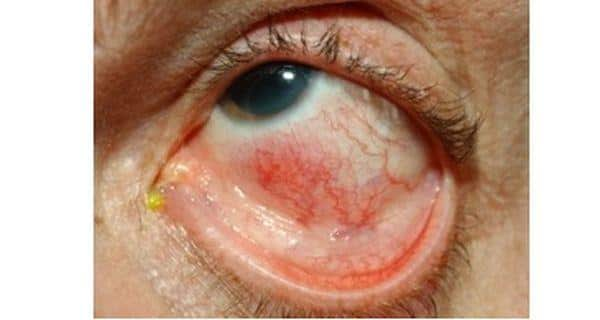 Retinal inflammation: Diseases that cause inflammation of the nerves in the retina and damage blood vessels are seen to gradually affect vision. In some cases, diabetes and high blood pressure cause changes in the retina leading to overgrowth of tiny blood vessels, which might ultimately cause stroke.
Retinal inflammation: Diseases that cause inflammation of the nerves in the retina and damage blood vessels are seen to gradually affect vision. In some cases, diabetes and high blood pressure cause changes in the retina leading to overgrowth of tiny blood vessels, which might ultimately cause stroke.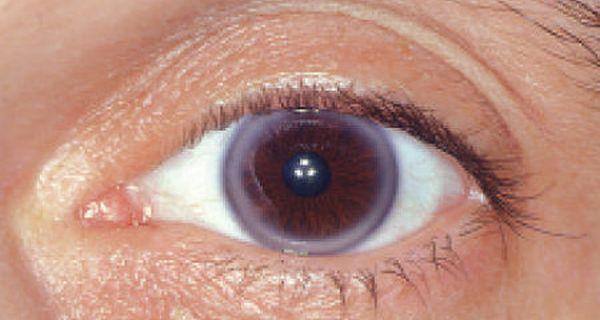 Rings around the cornea: In some cases, gray rings around the edge of the cornea are observed. These rings are termed are arcus senilis, which are usually caused due to high blood cholesterol and triglycerides in the body. Hence, it is recommended that people above 30 years of age should undergo regular eye check-up.
Rings around the cornea: In some cases, gray rings around the edge of the cornea are observed. These rings are termed are arcus senilis, which are usually caused due to high blood cholesterol and triglycerides in the body. Hence, it is recommended that people above 30 years of age should undergo regular eye check-up.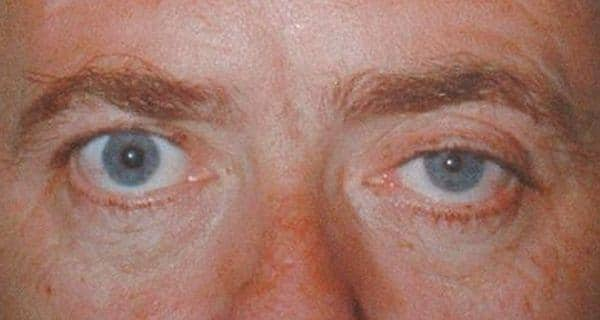 Abnormalities of pupil: Normally, healthy people have symmetrical pupils. However in some people, exposure to light causes one pupil to be bigger or one shrinks to become smaller than the other. The possible health complications of pupil abnormalities include stroke, brain tumor, optic nerve damage or multiple sclerosis.
Abnormalities of pupil: Normally, healthy people have symmetrical pupils. However in some people, exposure to light causes one pupil to be bigger or one shrinks to become smaller than the other. The possible health complications of pupil abnormalities include stroke, brain tumor, optic nerve damage or multiple sclerosis.
No comments:
Post a Comment